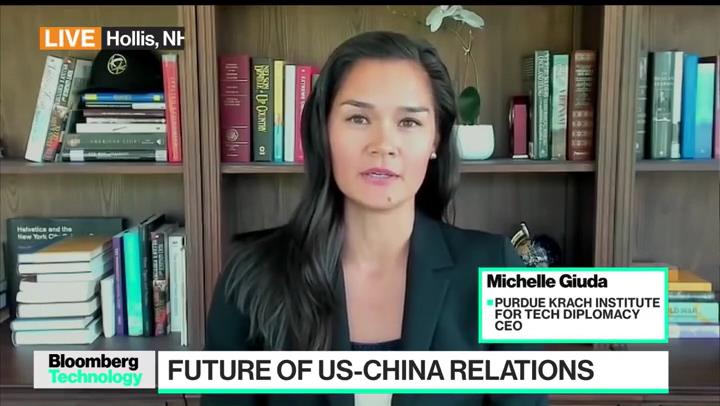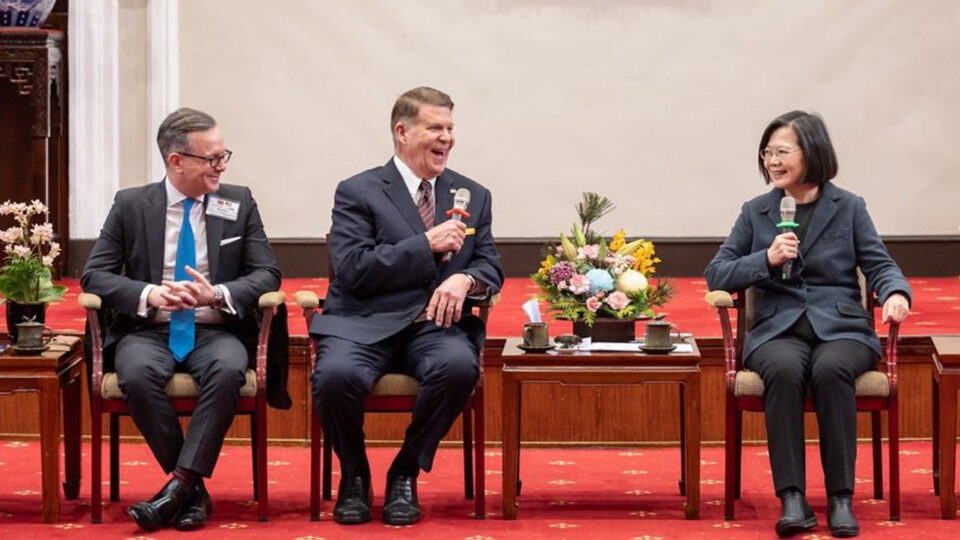EDITORIAL: US, Taiwan can tighten cybersecurity
08.11.23
Former US undersecretary of state Keith Krach, who is on a four-day visit to Taiwan ending tomorrow, called for strengthened Taiwan-US private-sector ties. He wrote on X on Wednesday that the private sector has a role to play in securing freedom, and that Taiwan’s private sector offers “a big competitive advantage vs the Chinese communist model.”
Source: Taipei Times

Taipei Times
Former US undersecretary of state Keith Krach, who is on a four-day visit to Taiwan ending tomorrow, called for strengthened Taiwan-US private-sector ties. He wrote on X on Wednesday that the private sector has a role to play in securing freedom, and that Taiwan’s private sector offers “a big competitive advantage vs the Chinese communist model.”
Separately, the Krach Institute for Tech Diplomacy at Purdue on Tuesday said that bolstering tech security and expanding Taiwan’s role in the Global Trusted Tech Network were among the aims of Krach’s visit.
The network, which comprises “like-minded countries, companies, and individuals who respect the rule of law, human rights, labor practices, national sovereignty and the environment” aims to “defeat authoritarian attempts to limit” the technological advances of that network’s members, Krach said. Given that technology is increasingly important in daily life, and that China’s threat to democracies globally keeps growing, Taiwan must play a role in that network, particularly given its technology sector strengths. The nation is often viewed as a defense aid recipient, but should assert itself as a crucial partner in protecting regional peace and security, including on the digital front.
The US over the past year has come under heavy Chinese and Russian cyberwarfare attacks. In recent years, it has curbed the trade of chips and technologies with those countries. Given its extensive experience dealing with cyberattacks from China, Taiwan’s partnership with the US on cybersecurity would be critical. Taiwan also could be a pivotal source of trusted software and hardware in the face of security concerns over using technology made in China.
“China is growing more ‘brazen’ in its cyberattacks and Russia is targeting US companies with intelligence operations over the war in Ukraine,” the Washington Post on April 27 cited US cybersecurity official Rob Joyce as saying. The US National Security Agency’s Section 702 is “tremendously productive” against cyberthreats, while the agency’s Cybersecurity Collaboration Center shields the US Department of Defense and defense contractors from foreign cyberthreats, he said. Taipei could encourage US authorities to establish branches of those agencies in Taiwan, where both sides could collaborate to defend against Chinese cyberattacks.
A New York Times report on May 24 said that Chinese hackers infiltrated Guam’s telecommunications systems, and that “the system in Guam is particularly important to China because military communications often piggyback on commercial networks” there. The article also said that, after the attacks, US officials “are assessing China’s capabilities — and its willingness — to attack or choke off Taiwan.”

